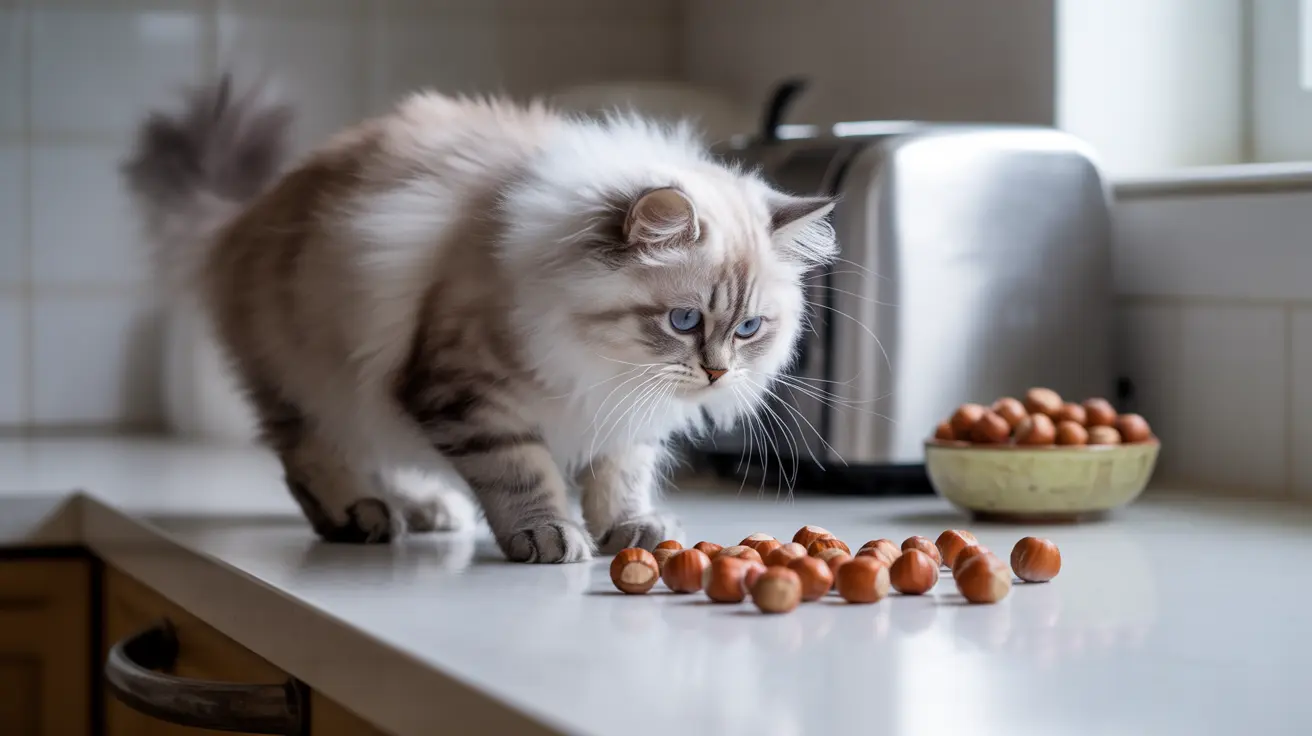If you've ever wondered whether it's safe to share hazelnuts with your feline friend, you're not alone. As cat owners become more conscious about their pets' diets, questions about human foods like hazelnuts frequently arise. While hazelnuts aren't toxic to cats, the answer to whether they should eat them isn't as straightforward as you might think.
In this comprehensive guide, we'll explore everything you need to know about cats and hazelnuts, including potential risks, nutritional considerations, and safer alternatives for treats.
Safety and Toxicity of Hazelnuts for Cats
While hazelnuts aren't technically toxic to cats, this doesn't mean they're a recommended treat. Cats are obligate carnivores, which means their digestive systems are specifically designed to process meat-based proteins rather than plant-based foods like nuts.
If your cat accidentally consumes a small piece of hazelnut, there's usually no immediate cause for concern. However, regular consumption or larger quantities can lead to various health issues.
Health Risks and Concerns
Choking Hazards
One of the most immediate dangers of hazelnuts for cats is the risk of choking. Cats' teeth aren't designed to properly chew nuts, and their small throats can easily become obstructed by these hard, rounded objects.
Digestive Issues
Even when properly chewed, hazelnuts can cause several digestive problems in cats:
- Stomach upset and discomfort
- Vomiting
- Diarrhea
- Potential intestinal blockage
Weight Management Concerns
Hazelnuts are extremely calorie-dense and high in fats. Regular consumption can contribute to:
- Obesity
- Diabetes
- Joint problems
- Cardiovascular issues
Nutritional Considerations
While hazelnuts are nutritious for humans, they offer little beneficial nutrition for cats. Cats require:
- Animal-based proteins
- Specific amino acids like taurine
- Vitamins and minerals from meat sources
The plant-based proteins and fats in hazelnuts don't provide the essential nutrients cats need, making them an unnecessary addition to their diet.
Safe Alternatives to Hazelnuts
Instead of hazelnuts, consider these veterinarian-approved treats for your cat:
- Commercial cat treats formulated for feline nutrition
- Small pieces of cooked lean meat
- Tiny bits of cooked fish
- Cat-safe catnip treats
Remember that treats should never make up more than 10% of your cat's daily caloric intake.
Frequently Asked Questions
Are hazelnuts safe for cats to eat, and can they cause poisoning?
Hazelnuts are not poisonous to cats, but they're not recommended. While they won't cause toxic poisoning, they can lead to choking and digestive issues.
What health risks do hazelnuts pose to my cat if eaten regularly?
Regular consumption of hazelnuts can lead to obesity, digestive problems, potential pancreatitis, and nutritional imbalances in cats.
How can I tell if my cat is choking on a hazelnut and what should I do?
Signs of choking include gagging, pawing at the mouth, excessive drooling, and difficulty breathing. If you suspect your cat is choking, seek immediate veterinary care.
Can cats develop allergies to hazelnuts, and what signs should I watch for?
While rare, cats can develop food allergies. Watch for signs like itching, swelling, vomiting, or respiratory issues. If these occur, consult your veterinarian.
What are safer treat alternatives to hazelnuts for my cat?
Safe alternatives include commercial cat treats, small pieces of cooked lean meat, and specially formulated feline treats. Always choose options specifically designed for cats.
Conclusion
While hazelnuts aren't toxic to cats, they're far from an ideal treat choice. The risks of choking, digestive issues, and weight gain far outweigh any potential benefits. Instead, stick to veterinarian-approved treats specifically designed for feline consumption, and maintain a balanced, meat-based diet for your cat's optimal health.






